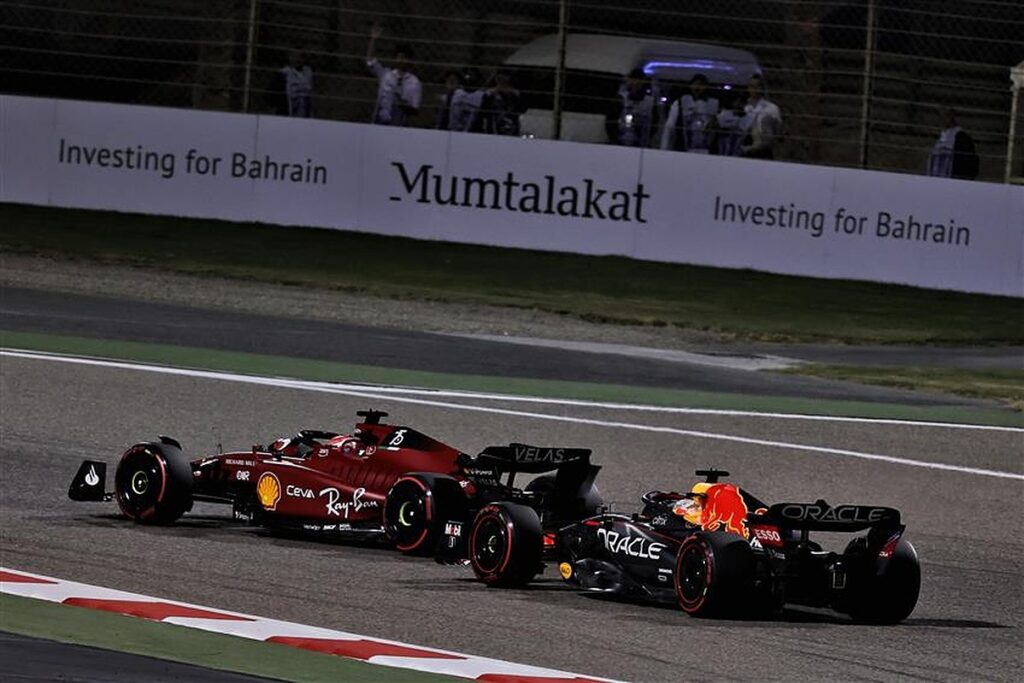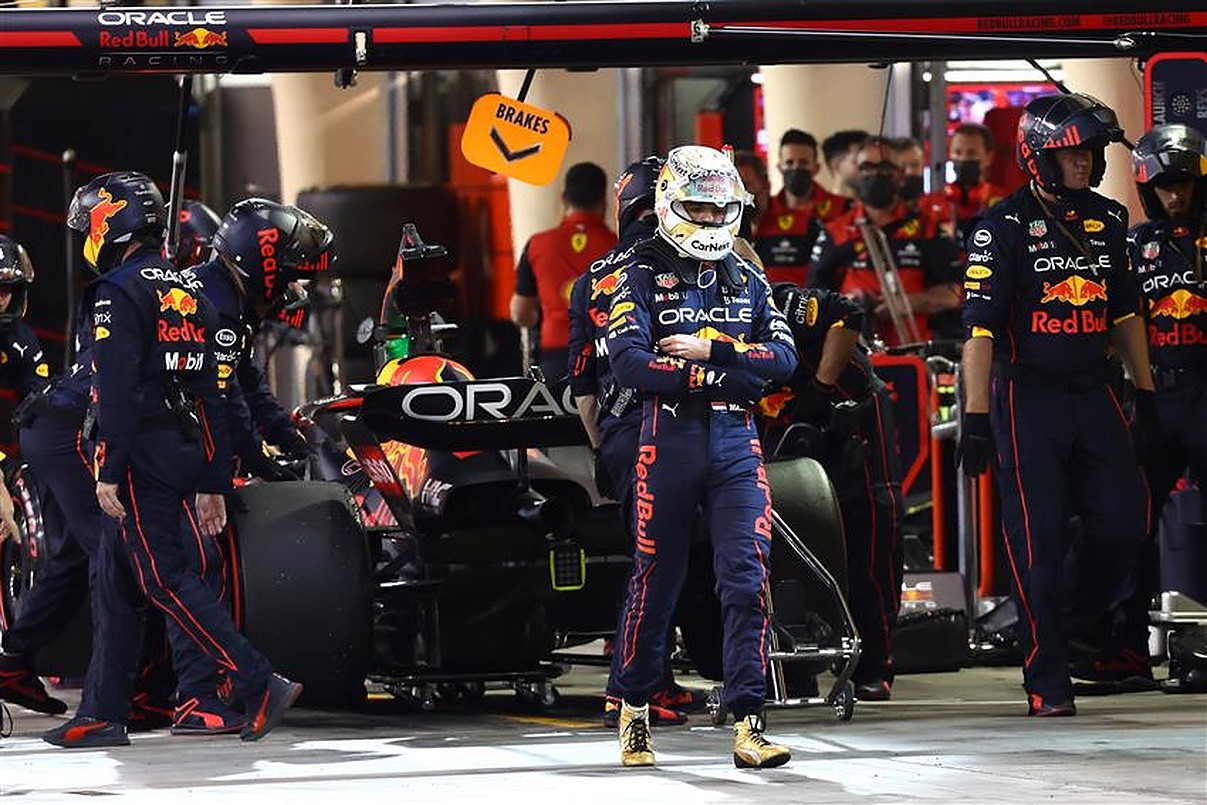An unnamed Formula 1 team has reportedly claimed that Red Bull’s devastating double non-finish at the 2022 Bahrain Grand prix was down to a lack of fuel towards the end of the race.
As a result of radical changes to the cars under brand-new technical regulations, the FIA increased the weight limit of the cars to 795kg, but Alfa Romeo were said to be the only team to build a car that was within those constraints.
The teams are reported to have negotiated a 3kg increase, which would now see the cars sitting at 798kg.
Also introduced in 2022 is a new E10 fuel blend, which consists of 90 percent fossil fuels and 10 percent ethanol as F1 tries to ramp up its push for sustainability.
READ: Hamilton ‘crusaders’ brand Verstappen ‘human error champion’ after FIA report released
The legacy of that is that the teams have also had to design new engines as well as different chassis and wheel rims to accommodate for the ground effect-based cars and the 18-inch tyres.
Both Max Verstappen and Sergio Perez retired late on with what looked like similar issues in Bahrain, and team principal Christian Horner confirmed that the Dutchman’s untimely departure from the race was not related to the “heavy” steering induced by the car hitting the ground following a pit stop.
Advisor Dr Helmut Marko confirmed that there were no problems with the Honda – now officially known as Red Bull powertrains – engine in the back of the car, but rather an issue with the fuel.
“What happened is something completely new. This has nothing to do with the macro components of the power unit,” he told Austrian broadcaster ORF.
“It’s something related to the fuel system.”
During the weekend, the FIA gave the teams an extra hour in the garages to check out the three standard issue pumps – the lift pump, the priming pump and the high-pressure pump – used to extract fuel from the tank.
At the time, Horner indicated that these checks were merely a precaution in case anything needed to be substituted.
“It was more of a general problem and not specific to our car. We were given extra time, so we wanted to check them out just to be safe,” he said.
After the race’s completion, the 48-year-oldd suggested that, among other things, the lift pump could have been the issue, but stressed the team would have to diagnose the issue and “understand exactly what’s caused it.”
It has now been alleged that the Red Bull cars simply ran out of fuel at the end of the race, as the Milton Keynes side had underfueled their machines to mitigate their reported 10kg weight disparity against Ferrari, who scored a one-two victory, according to formu1a.uno.
But a former Red Bull engineer has rubbished this, affirming that the team would have already spotted the issue long before it infiltrated their race, and that the late Safety Car caused by Pierre Gasly’s fire would have presented the perfect opportunity to save fuel.
“That same also believes that pigs fly There is no way that a team can run out of fuel on the track, you’ll know ages before it happens through the telemetry,” he said.

“Also, the safety car would have saved fuel, they’d have to be fuelled for like, 3/4’s of the race for this to be viable.
“The only time it happens is when Ferrari used to do it on purpose in testing and that was so they could make sure the software was accurate in its estimate.”
Irrespective of what the issue is, Red Bull will be aiming to ensure that it does not recur as they head to Saudi Arabia for round two of the 2022 season this weekend.

